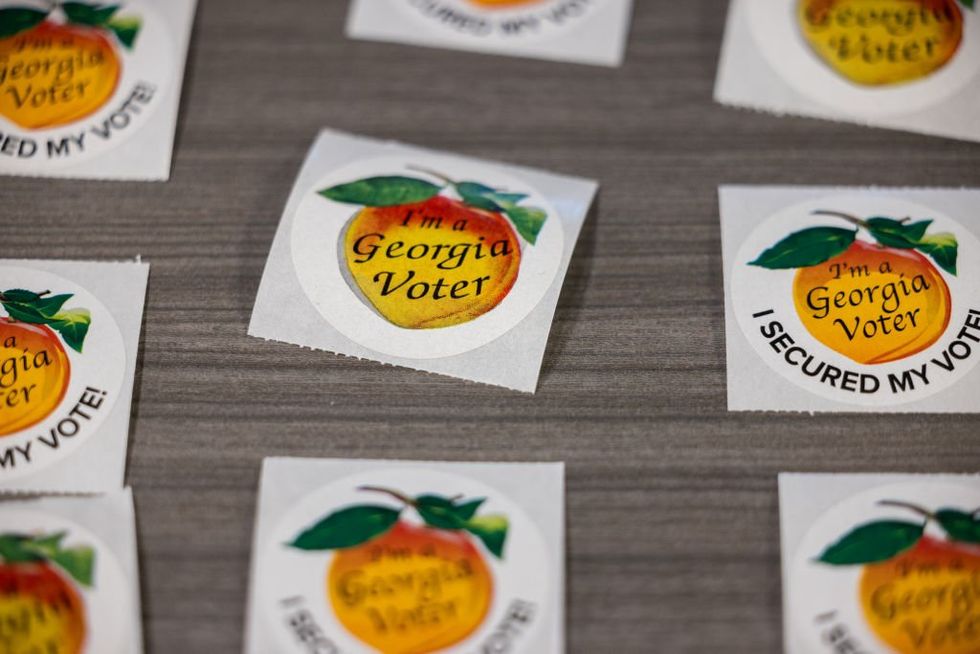
This article was originally published on Washington Examiner - Opinion. You can read the original article HERE

Six months from retirement and in desperate need of a foreign policy win, President Joe Biden just got one with the release of Wall Street Journal reporter Evan Gershkovich, U.S. citizen Paul Whelan, Washington Post columnist Vladimir Kara-Murza, and 13 other prisoners from Russia. The Americans, working with Germany, Poland, Slovenia, and Norway, agreed to send eight convicted prisoners back to Russia, the most infamous being Vadim Krasikov, a veteran of the Soviet Union’s war in Afghanistan and a Russian intelligence operative who, in 2019, gunned down a Chechen dissident in the heart of Berlin.
The Biden administration, in cooperation with European allies, was working on a possible prisoner swap even before Gershkovich was arbitrarily nabbed by the Russians, tried on trumped-up espionage charges, and sentenced in mid-July to 16 years in prison. The reporter’s unjustified incarceration was a terrible episode, first and foremost, for his family, who lived through the last 19 months in agony, not knowing whether they would ever see him again. But it was also a painful episode for Biden and his national security team. In December 2022, months before Gershkovich’s imprisonment, the White House received considerable criticism when it traded convicted arms trafficker Viktor Bout for WNBA star Brittney Griner.
Like the Griner swap, this swap required tough concessions by the Americans. Some pretty unsavory characters charged with spying and fraud were given a second lease on life. It also required European cooperation since Krasikov, whom Russian President Vladimir Putin obsessed about getting back to Russia, was in a German prison cell. The deal worked out, with CIA Director William Burns playing a prominent role by flying to multiple capitals to ensure the logistics of the release were ironed out. At the end of the day, seven planes landed at a Turkish airport, where all of the prisoners were collected, checked for medical problems, and sent to their respective countries.
Most of the attention in the early hours has focused on the intrigue of the prisoner swap, how it was negotiated, who was involved, and why the various players came to the decision they did. But there’s another question to be batted around: Could this Cold War-esque prisoner exchange be the opening gambit in a more semiworkable relationship between Washington and Moscow?
In an ideal world, the answer would be yes. If the swap tells us anything, it’s that the United States and Russia can find a way to collaborate toward a mutually acceptable agreement that serves both of their interests. The Gershkovich negotiation wasn’t a slam dunk. It required extreme patience, perseverance, and setbacks. The entire process almost collapsed after Russian opposition leader Alexei Navalny, who was rumored to be a part of any package, died after spending years in a Russian penal colony. But the U.S. and Russia were able to continue sending proposals to each other, testing various formulations and combinations until the right one was found.
Unfortunately, we don’t live in an ideal world. In reality, the outlook for a broader U.S.-Russia opening is dim. The war in Ukraine has sucked up all the oxygen in the room, which means that until the war is settled one way or the other, bilateral relations will remain frail and adversarial. The only reason the multicountry prisoner exchange moved forward was that Washington and Moscow wanted their people back and had something to offer. The Americans and Russians had an incentive to conclude the negotiations successfully.
This isn’t yet the case with Ukraine, arms control, or any other big-ticket item of geopolitical significance. On Ukraine, Washington and Moscow remain on polar ends of the spectrum, with the Ukrainians using U.S. weapons to kill Russian soldiers every single day. Although Putin has hinted about a ceasefire and diplomatic settlement, his terms — a Ukrainian withdrawal from all the territory in the east and south Moscow artificially claimed back in 2022 — are so preposterous in the eyes of the Americans and Ukrainians that they don’t inspire much interest. For Putin, prisoners are pieces on a chessboard. Ukraine, though, is the entire game.
CLICK HERE TO READ MORE FROM THE WASHINGTON EXAMINER
Arms control and strategic stability don’t look promising, either. The Cold War-era arms control infrastructure is now gone. New START, which caps U.S. and Russian deployments of strategic nuclear warheads, is now a ghost agreement in which mutual information exchanges and verification are cut off. The U.S. is preparing to deploy intermediate-range missiles to Germany in 2026, and the Russians are already making noise about increasing their own missile deployments in response.
There are a lot of happy families celebrating today. But in terms of U.S.-Russia relations, there still isn’t much to celebrate.
Daniel DePetris (@DanDePetris) is a contributor to the Washington Examiner’s Beltway Confidential blog. His opinions are his own.
This article was originally published by Washington Examiner - Opinion. We only curate news from sources that align with the core values of our intended conservative audience. If you like the news you read here we encourage you to utilize the original sources for even more great news and opinions you can trust!










Comments